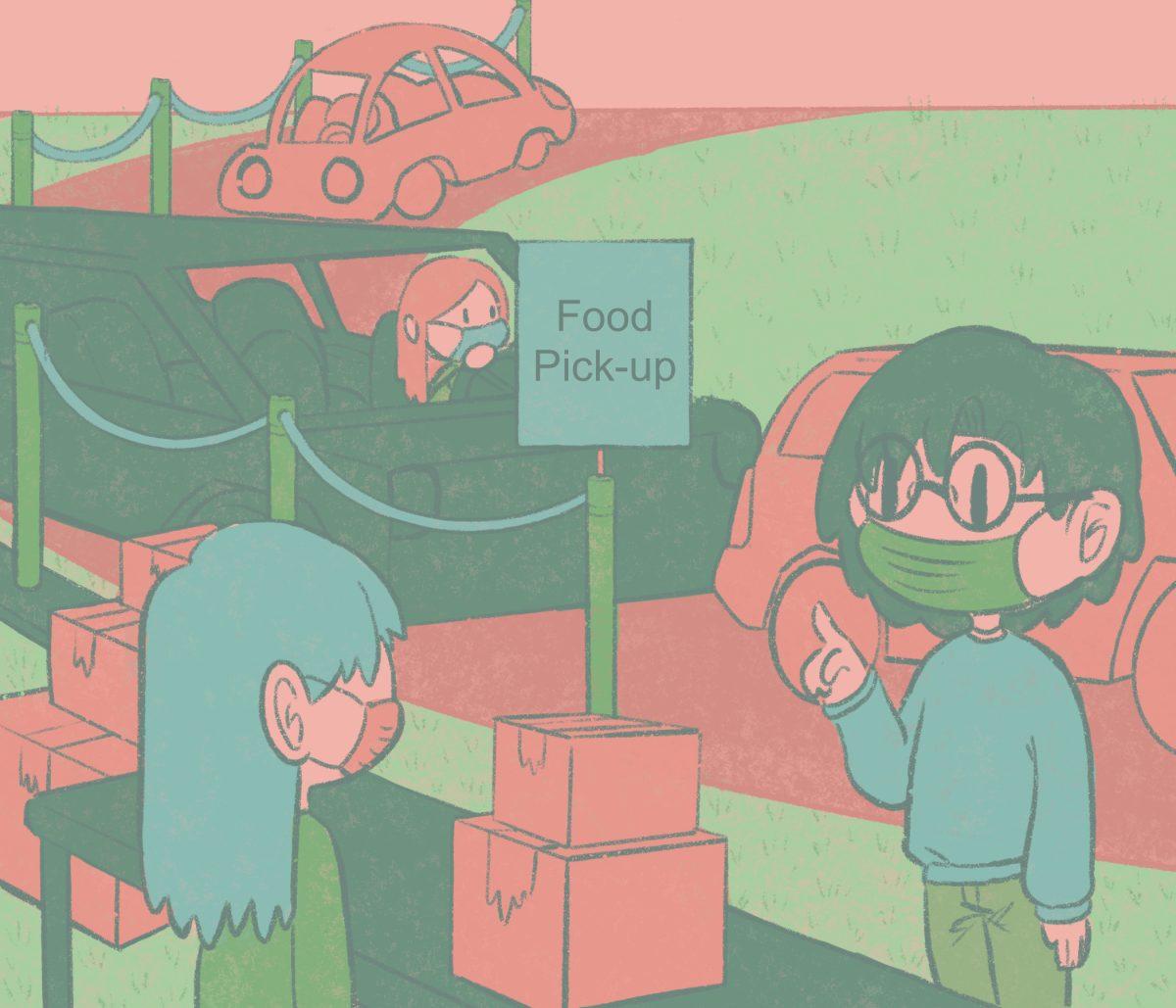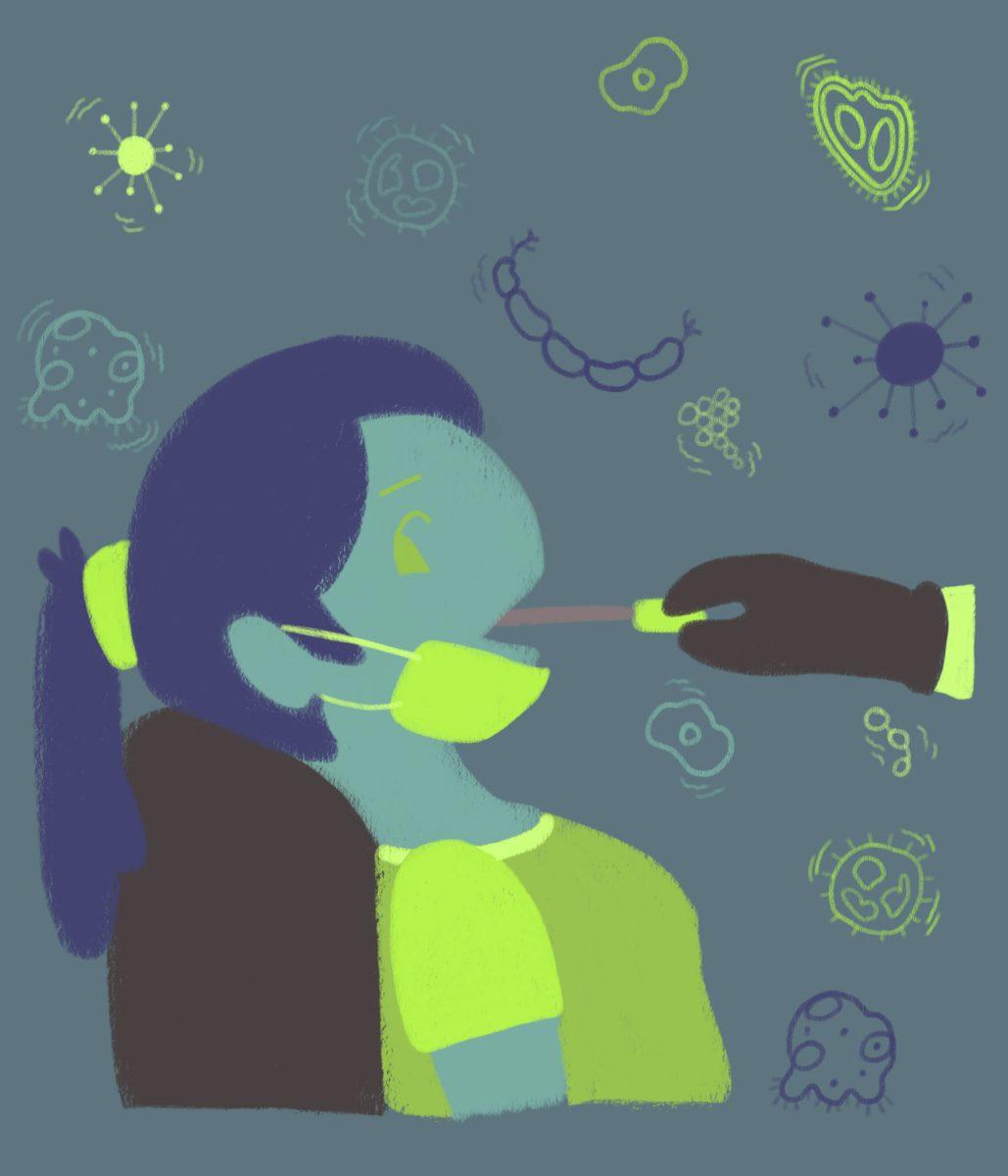Students, university step up to support community during pandemic
As UTD shelters in place, students have formed a mutual aid group to ensure their peers get the support they need, and university volunteers stepped up to help the local community.
International political economy senior Sarah Whipple started a Facebook group called “UT Dallas COVID-19 Mutual Aid to encourage people to share resources and services during social distancing. The group has reached over 160 members.
Mutual aid has been practiced in the past by LGBTQ groups, immigrants and communities of color, and primarily consists of taking care of each other when institutions won’t, Whipple said.
“There’s a lot of needs coming right now out of coronavirus: people being laid off, people are forced to isolate, especially those who are disabled or immuno-compromised,” Whipple said. “When all those things happen, then people need extra services like grocery delivery or free food or a ride to a doctor’s appointment, which is less risky than being in a public bus.”
Whipple said she started the group after seeing other mutual aid groups from Europe posting on Twitter and thought it would be useful to have at UTD. She said while she doesn’t know what the situation with on-campus housing will become in the future, the group is there to be ready for when things get worse.
“I am going to stay on campus. I don’t have any other options. And I know that other people will as well — especially international students. We have so many international students who cannot go home right now,” Whipple said. “We’ll have people who can’t travel because of costs, and so there are people who will remain on campus, and we hope to be able to sort of have a network prepared to support those people when UTD shuts down and there’s no services really available.”
In addition to posting flyers around campus apartments, keeping a store of non-perishable food to give out and advertising the group as much as possible, Whipple said the group is currently trying to set up an emergency fund. She said her main concern is with people being less likely to donate money to an unknown organization.
“We have some supplies, but people need money, right? Food doesn’t solve everything; it just may be an immediate need. But if you have rent or healthcare costs or childcare or whatever it is, you can only do so much,” Whipple said. “We’re really hoping that we’re able to institute an emergency fund, but I think that’s the most complicated of all of these things because it’s pretty easy to convince people they should donate canned food. And people are kind of on board with that. But we’ll see how it goes with the money portion.”
The Facebook group includes posts such as Google spreadsheets with available resources people can turn to, guides to practicing mutual aid in a responsible way and updates on university COVID-19 procedures.
Besides mutual aid, student-run companies are also advertising updated services aimed to support their peers. One such group is CampusOven. This semester, physics senior Benjamin Rubanov and three other UTD students created CampusOven to prepare and sell healthy food to students on campus. CampusOven uses brand ambassadors to spread the word about their company. Marketing sophomore Yen Pham and finance sophomore Phuong Vu use their Instagram pages to promote the company to their followers.
Co-founder and mechanical engineering senior Logan Harless said after COVID-19 procedures were implemented, the team switched to a delivery-based model while continuing to provide healthy foods to students. The company provides free contactless delivery, charges $6.99 per pound of food and features a menu of items such as zoodles and overnight oats.
“There’s a lot of people just dealing with difficulties in food insecurity, getting access—and they’re not sure whether or not they should be going to the grocery store. We’re in a unique position to help those people,” Harless said. “Ready-made meals for a reasonable price … can get delivered to them. So even though delivery wasn’t even in our original plans and it’s not really all that profitable for us as it would be compared to pick-up, we decided it was the right thing to do just because we were able to help (the) UTD community.”
The team has adjusted accordingly to COVID-19 CDC standards by decreasing personnel in the kitchen, relying on contactless delivery and wearing gloves and masks. They plan to continue this procedure for the rest of the semester until the situation changes.
“Our plan has definitely changed, but we want to wrap it up with trying to get as many people serviced and get as many people through it as possible,” Rubanov said. “(We’re) basically trying to provide a really strong food outlet for the mutual aid groups and everyone in the community right now. At the same time, we want to build up our marketing channels and profiles just to be able to reach as many people as possible so that when we come back (in) the fall we can have a very strong launch.”
UTD researchers have also stepped up in the wake of COVID-19, with the university donating over 73,000 supplies such as gloves, masks, gowns and shoe covers to Parkland Hospital in Dallas. The university’s Staff Council is also working with volunteers to sew face masks for campus employees and the Comet Cupboard is hosting walk-up and drive-up food drives for students in need.
Whipple said she’s not worried about the number of people who end up joining the mutual aid group, and that the page is mainly a platform for people to help one another.
“We will look out for each other. In times of crisis, there’s a lot of scary things, but a lot of times people really do feel the need to come together and really beautiful things can come out of that too. I know it’s a scary time and I’m not going to tell anyone that everything is going to be great,” Whipple said. “At the very least, we’re here, there are other people who are here around you who are ready and willing to help and to share. I hope that that will give people a little bit of comfort.”











